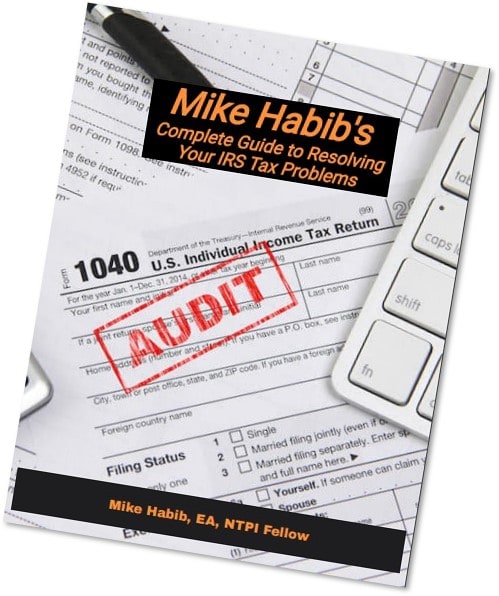Your Tax Problems
Tax Strategies for Withdrawing Cash from Your Corporation
By Mike Habib, EA
The simplest way to withdraw cash from the corporation would be to use a dividend distribution. However, a dividend distribution has the disadvantage of resulting in double taxation of the corporate income, since the dividend is taxable to you, as recipient, to the extent of the corporation’s “earnings and profits,” but not deductible by the corporation.
There are several alternative methods available to you that may allow you to withdraw cash from the corporation while avoiding dividend treatment:
- To the extent that you have capitalized the corporation with debt, including any amounts that you have advanced to the corporation, the corporation may repay the debt without the repayment being treated as a dividend. This assumes that the debt has been properly documented and contains certain terms that characterize debt, rather than equity, and that the corporation does not have an unduly high debt to equity ratio. Otherwise, the repayment of the “debt” will also be taxed as a dividend.
- Any compensation that you receive for your services to the corporation is taxable to you, but deductible to the corporation. Thus, the amount of the compensation will not be subject to double taxation. Similarly, if any of your family members perform services for the corporation, the compensation they receive will not be subject to double taxation. The same rule also applies to any compensation that you receive from the corporation for the use of your property, including any rent that you receive from the corporation. However, the amount of compensation must be reasonable in relation to the services rendered. To the extent the compensation is excessive, the excess will be treated as a dividend.
- You may withdraw cash from the corporation by borrowing money from the corporation. However, in order to ensure that the loan itself is not treated as a dividend, make sure that the loan is properly documented and repay it in a timely fashion. In addition, the loan must bear interest at not less than a specified federal rate so that none of the foregone interest is treated as a dividend or compensation to you.
- You may withdraw cash by receiving certain fringe benefits that are deductible to the corporation and not taxable to you. These may include life insurance, certain medical benefits, disability insurance, dependent care and other benefits. Most of these benefits are tax free only if provided on a nondiscriminatory basis to other employees of the corporation. You can also establish a salary reduction plan that would allow you (as well as other employees) to take a portion of your compensation as nontaxable benefits, rather than as taxable compensation.
- It may be advantageous to have the corporation pay certain of your business related expenses. For instance, if the corporation pays for your subscription to a business related publication, the cost is deductible to the corporation, but not taxable to you. However, there are limitations that prevent the deduction of all or part of certain expenses, such as club dues and meal expenses. Where the corporation pays for a car that you use for both business and personal use, special rules apply to determine how much of the cost of the car is taxable to you.
- You may withdraw cash from the corporation by selling property to the corporation. However, certain types of sales should be avoided. For instance, you should not sell property to a 50% owned corporation at a loss, since the loss on the sale will be disallowed. Similarly, you should not sell depreciable property to a 50./0 owned corporation at a gain, since the gain will be treated as ordinary income, rather than capital gain. Thus, you should sell either no depreciable property on which you will not incur a loss or property that is neither appreciated nor depreciated.



